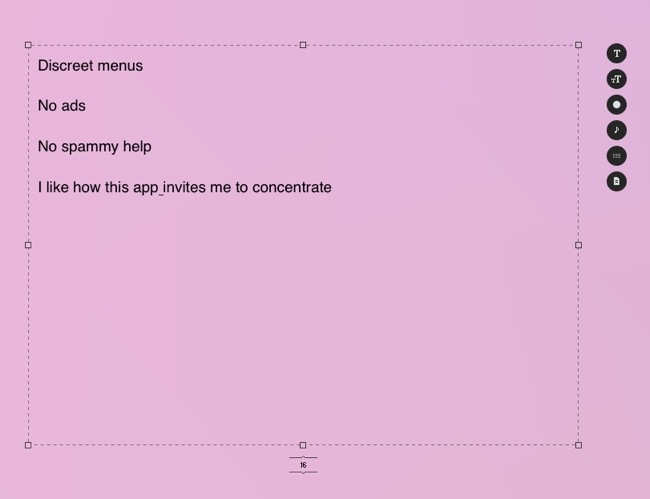I received a great feedback from everyone since I posted the
“5 Buddhist habits you could apply everyday”.
It motivated me to release some more meditation related tricks to use in daily life.
This time I’ll talk about one of my obsessions:
Using focus as a tool to protect your brain from information overflow.
What is focus? 🔗
For some, focus equals performance.
Others associate it with meditation.
Technically, focusing means concentrating on something while ignoring the rest and it’s natural to human beings: our minds are designed to be selective, we’d go insane trying to process all the available information at the same time.
The problem is: that’s exactly what’s happening nowadays, the information economy is pushing so much junk in our brains that we’re starting to develop news diseases (ADD being one).
We can respond to this overflow by learning to focus on purpose, and developing the ability to place our attention somewhere and keep it there.
Buddhism offers a good frame for that, and even if this article is only a teaser, it offers some perspective on meditation vs ADD.
Let’s start with the enemy:
Marketers feed on your eyeballs 🔗
Today, focus is made nearly impossible with our senses constantly solicited by manufactured information.
Why?
Because marketers want your attention, they need it so they can convert it into sales…or votes.
Attention > Click > Sale 🔗
Every business makes sure you PAY attention to their messages constantly by making ads sexy and colorful and shocking…they’ll do whatever it takes to get a hold of your brain:
**– Ads plastered Blogs
**– Ads plastered streets
**** – Ads plastered everything:
clothes, TV shows, plastic bags, Facebook, YouTube, they’d smear your girlfriend’s pretty face with ads if they could.
It’s getting pretty obvious that attention is the 21st century’s currency, online programs claiming to be free are not free, they’re financed by you watching their ads.
You’re constantly paying these guys with your available brain time.
Your awareness cannot be robbed without your consent, though, you have a choice on how to invest it.
So how do you impose YOUR rules (since that’s YOUR brain, right)?
Filter out 🔗
Stop blowing your attention, save it for what really matters.
Here’s a good example set by the Buddha 2500 years ago when he had to manage his monks’ ADD.
The first thing he established was guidelines to help his disciples filter out sensory disturbances: there are 200+ monastic vows in Buddhist orders, many of them have been designed to limit distractions.
Take this weird commitment, for instance: the vow “not to watch elephants perform war maneuvers”. Its origin traces back to ancient India, when elephants were used as warhorses.
Back then, the Buddha noticed some monks interrupting their meditation to stare at war elephants training for combat. He decided to edict a rule preventing his disciples’ from being distracted by pachydermic shows.
How does this totally obsolete rule apply to modern humans like us?
Simply this: Buddhist monks gain focus by cutting down on junk information and we should steal their strategy.

We don’t have war elephants anymore, but thousands of other distractions have replaced them:
– Smart-phone (YES, DO SHUT THIS THING DOWN!)
– **TV
** – Radio (still have one?)
– Social apps: Facebook, Twitter, Pinterest and the “likes”
To get back in control, just try to shut down these devices, if only for an hour.
If the silence didn’t make you too panicky, try it again.
After that, give yourself a break and just breathe.
Breathe…And that’s it? 🔗
Yes, that’s all there is.
Once you’ve cut down on junk-information, rest your consciousness on your breath and help it stay there.
Breathe in and out. When your mind starts wandering again, bring it back to the breath, kindly.
Start with 5 mn sessions.
Prolong the session if you can.
If you’d like to actually train your mind for mindful breathing practice, go here.
One thing at a time 🔗
Learning meditation will condition your mind to stay put and be happy about it, for 5, 10mn or more
But that won’t be enough, you’ll need a strategy to help your mind focus while you’re not meditating.
This is widely covered by Buddhist teachings, but I’ll just mention one single rule: don’t multi-task.
Multi-tasking is evil and it doesn’t work.
I’m guilty of shuffling every day, but I try to cure that tendency, like a good monk should do.
Here’s a few examples of mono-tasking approaches:
– When you listen to someone try to do that only: focusing on what she is trying to say (eyeing on your smart-phone while she’s telling you about her break up is evil)
– When you write a post, close your social apps, Skype and Gchat and whatnot, that’ll frees your memory to get in the flow
– When you watch a movie, leave your down-payment issues at the door (that’s a tough one)
All the techniques mentioned above only depend on you, your mind has all it needs to respond to information hijacking, however, some gadgets can make it more fun:
A few tools 🔗
here’s a few gizmos to train your mind the art of staying put:
The funny “do nothing for two minutes” website which challenges you to precisely do NOTHING for two minutes.
You might also like “OMM” a text editor for the mac that protects you from notifications and side messages:
Finally, you might want to try this, that’s a good way to torture smart phone addicted brats around you:

Phones face down stacked at the table during a meal. First person to check their phone pays the bill :)
** **
I’ll post some more about smart Buddhist habits, you should subscribe on the right if you’d like to receive them by email :)
You can also connect with me by:
Friending me on the book of faces
_or
_ Following me on twitter

